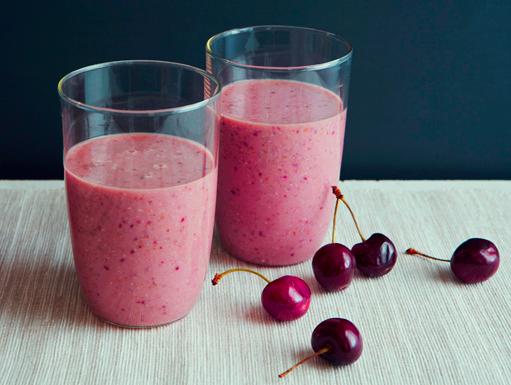In a world where our furry companions are cherished family members, ensuring their health and vitality becomes a top priority. Just as we seek out the best for ourselves, our pets deserve the same level of care and attention. Enter antioxidants—a powerful ally in the quest for optimal pet health. These tiny warriors, celebrated for their role in combating oxidative stress, can make a significant difference in your pet’s well-being. Join us as we explore the enchanting world of antioxidants and discover the supplements that can help your beloved pets lead longer, healthier lives. Whether you’re a seasoned pet parent or new to the joys of animal companionship, this journey promises insights and warmth, all in the name of nurturing those who bring so much joy into our lives.
Understanding Antioxidants: Nature’s Guardians for Your Pets
Antioxidants are nature’s guardians, playing a crucial role in maintaining your pet’s overall health by neutralizing harmful free radicals. These free radicals are unstable molecules that can cause cellular damage, leading to a myriad of health issues such as aging, inflammation, and even cancer. By incorporating antioxidants into your pet’s diet, you can help protect their cells and support a longer, healthier life.
Here are some beneficial antioxidants to consider for your furry friend:
- Vitamin E: Essential for immune function and skin health.
- Vitamin C: Supports collagen production and acts as an anti-inflammatory agent.
- Beta-Carotene: A precursor to Vitamin A, vital for vision and immune health.
- Selenium: A trace mineral that works synergistically with Vitamin E to protect cells.
- Coenzyme Q10: Supports heart health and energy production at the cellular level.
Adding these supplements to your pet’s diet can make a significant difference in their well-being. Always consult your veterinarian before introducing new supplements to ensure they are appropriate for your pet’s specific needs.
Boosting Immunity: How Antioxidants Support Furry Friends
Antioxidants play a crucial role in enhancing your pet’s immune system, helping to fend off diseases and promote overall well-being. These powerful compounds combat oxidative stress and free radicals, which can damage cells and lead to various health issues. By incorporating antioxidant-rich foods and supplements into your furry friend’s diet, you can give their immune system the boost it needs to stay resilient and healthy.
Consider adding the following antioxidant-rich supplements to your pet’s daily regimen:
- Vitamin E: Known for its skin and coat benefits, Vitamin E also supports immune function and cellular health.
- Vitamin C: Though pets can synthesize their own Vitamin C, additional supplementation can provide extra immune support, particularly for older animals or those under stress.
- Coenzyme Q10: This potent antioxidant aids in cellular energy production and supports cardiovascular health.
- Beta-Carotene: Found in carrots and sweet potatoes, beta-carotene is a precursor to Vitamin A, which is vital for immune function and vision.
- Selenium: A trace mineral that works synergistically with Vitamin E, selenium is essential for maintaining a robust immune system.
By integrating these supplements into your pet’s diet, you can help ensure they stay vibrant, active, and less susceptible to illness.

Top Antioxidant-Rich Foods: Delicious and Nutritious Choices
When it comes to boosting your pet’s health, incorporating antioxidant-rich foods into their diet can make a world of difference. These foods are not only packed with essential nutrients but also delicious, ensuring your furry friend will love them. Here are some top choices to consider:
- Blueberries: Known for their high levels of vitamins C and K, blueberries are a tasty treat that can help reduce inflammation and support brain health.
- Sweet Potatoes: These vibrant tubers are loaded with beta-carotene and vitamin E, promoting a healthy coat and skin.
- Spinach: Rich in iron and magnesium, spinach is a leafy green that supports overall vitality and energy levels.
- Carrots: Crunchy and sweet, carrots are an excellent source of beta-carotene, which is vital for maintaining good vision and immune function.
- Apples: Offering a good dose of fiber and vitamin C, apples are a refreshing snack that can aid in digestion and dental health.

Choosing the Right Supplements: Tailored Solutions for Every Pet
When it comes to enhancing your pet’s health, choosing the right supplements is crucial. Every pet is unique, and their nutritional needs can vary significantly. To ensure you’re providing the best care, consider tailored antioxidant solutions that cater to your pet’s specific requirements. Here are a few key factors to consider:
- Age: Young, active pets might benefit from different antioxidants compared to older pets. For instance, puppies and kittens may need more vitamin E to support their growing bodies, while senior pets might require Coenzyme Q10 to help maintain heart health.
- Breed: Some breeds are predisposed to certain health issues. Breeds prone to joint problems, like Labradors, might benefit from supplements containing glucosamine and chondroitin alongside antioxidants like turmeric for its anti-inflammatory properties.
- Dietary Restrictions: Pets with specific dietary needs or allergies may require customized supplements. For example, a grain-free diet might lack certain antioxidants found in grains, so supplements containing quercetin or resveratrol can help fill the gap.
By considering these factors, you can select antioxidant supplements that not only boost your pet’s overall health but also address their individual needs. Always consult with a veterinarian to determine the best approach for your furry friend.


































